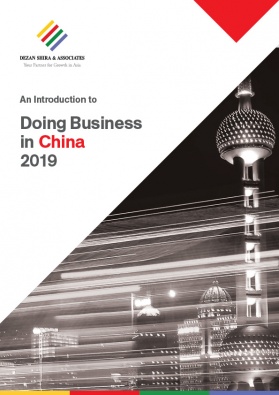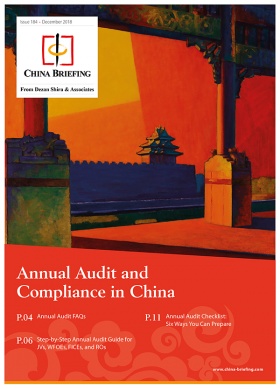China to Permit Domestic Sales from Bonded Zones

China has announced the government’s intent to expand the range of business activity and services permitted in its comprehensive bonded zones. This is a positive development for foreign investors in China whose businesses are in such zones.
Comprehensive bonded zones in China are special commercial areas with favorable taxation policies, which are managed by customs officials. Previously, these zones were almost exclusively used to assemble foreign and Chinese manufactured parts into one finished product intended for the export market.
The government now plans to enhance their investor-friendly status through “streamlined procedures to boost global competitiveness”, according to Li Guo, deputy head of the General Administration of Customs, at a policy briefing hosted by the State Council Information Office. The goal is to convert comprehensive bonded zones into “centers of process manufacturing, research and design, logistics, repair, maintenance, and sales services”.
The proposed changes are part of a new guideline drafted by the General Administration of Customs and 14 other departments, which was approved at the State Council executive meeting on January 2 and is expected to be released soon.
The draft guideline calls for opening up these comprehensive bonded zones to manufacturers to import some goods duty-free as well as supply to domestic companies outside the zones. For instance, cellphones and automobile components manufactured in these zones could be sold within the domestic market without needing import licenses.
Once implemented, comprehensive bonded zones will benefit from preferential import policies on cross-border e-commerce. Enterprises registered in these zones will be granted status as general VAT taxpayers. They will also be permitted to import machines for self-use and their customs clearance procedures will be streamlined.
The expansion of permitted activities in bonded zones is linked to two main issues:
- preventing the wholesale loss of foreign investors to Vietnam and elsewhere in Asia due to US trade tariffs by offering manufacturers access to the Chinese domestic market, and
- stimulating foreign investment back into China.
Companies with a presence in these zones may need to adjust the scope of their business license if they wish to undertake the newly permitted activities. Further, in some zones, a duty bond may need to be filed with the customs officials.
Foreign investors looking to sell in China might find these new regulations a quick fix to China’s restricted market access. Investment regulations into China’s bonded zones vary on a regional basis. Please contact Dezan Shira & Associates at china@dezshira.com for specific assistance.
About Us
China Briefing is produced by Dezan Shira & Associates. The firm assists foreign investors throughout Asia from offices across the world, including in Dalian, Beijing, Shanghai, Guangzhou, Shenzhen, and Hong Kong. Readers may write china@dezshira.com for more support on doing business in China.
- Previous Article Relocating a Business in China: A Checklist for Investors
- Next Article Fünf Betrugspräventionsstrategien, um Ihr Unternehmen in China zu schützen







